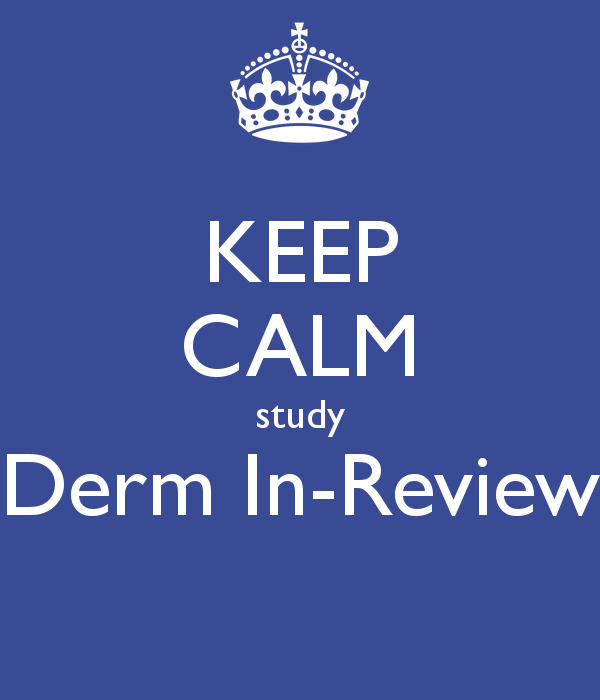I Wish I Had Known: Studying for the Boards
 Studying for the boards can be an incredibly stressful and daunting time. The Board exam is really a culmination of three years of intense dermatology training. You have been preparing for this exam throughout your entire residency. The weeks or months before the exam should be used as final preparation to review concepts or areas that you are rusty on or never properly learned. Be comfortable wit …
Studying for the boards can be an incredibly stressful and daunting time. The Board exam is really a culmination of three years of intense dermatology training. You have been preparing for this exam throughout your entire residency. The weeks or months before the exam should be used as final preparation to review concepts or areas that you are rusty on or never properly learned. Be comfortable wit …
 Studying for the boards can be an incredibly stressful and daunting time. The Board exam is really a culmination of three years of intense dermatology training. You have been preparing for this exam throughout your entire residency. The weeks or months before the exam should be used as final preparation to review concepts or areas that you are rusty on or never properly learned. Be comfortable wit …
Studying for the boards can be an incredibly stressful and daunting time. The Board exam is really a culmination of three years of intense dermatology training. You have been preparing for this exam throughout your entire residency. The weeks or months before the exam should be used as final preparation to review concepts or areas that you are rusty on or never properly learned. Be comfortable wit … Continue reading "I Wish I Had Known: Studying for the Boards"


 In this second article in this series, we will take a further look at some tried and true methods for preparing yourself for “The Boards.”
1) Dermatology is a visual medical specialty
One of the great challenges of our specialty is that different conditions can look similar, and the same condition can look different (or “atypical”) across anatomic sites and populations. Many of the quest …
In this second article in this series, we will take a further look at some tried and true methods for preparing yourself for “The Boards.”
1) Dermatology is a visual medical specialty
One of the great challenges of our specialty is that different conditions can look similar, and the same condition can look different (or “atypical”) across anatomic sites and populations. Many of the quest …  When preparing yourself for “The Boards,” there are many things to take into consideration. Read on in to learn tried and true tips that will help you on your road to passing the exam. And embarking on your career as a certified dermatologist.
1) This is a marathon, not a race – start preparing early
The accumulation of knowledge for the Certifying Examination is meant to take place over t …
When preparing yourself for “The Boards,” there are many things to take into consideration. Read on in to learn tried and true tips that will help you on your road to passing the exam. And embarking on your career as a certified dermatologist.
1) This is a marathon, not a race – start preparing early
The accumulation of knowledge for the Certifying Examination is meant to take place over t …  When it comes to board exams, there is one important thing to remember for success: You don't just need to learn material, you have to synthesize it. Medical journals and literature are tricky and require creative thinking and applied problem solving in order to fully understand; that's why synthesis is so important. This could mean building tables, compiling figures and small chunks of data... wh …
When it comes to board exams, there is one important thing to remember for success: You don't just need to learn material, you have to synthesize it. Medical journals and literature are tricky and require creative thinking and applied problem solving in order to fully understand; that's why synthesis is so important. This could mean building tables, compiling figures and small chunks of data... wh …